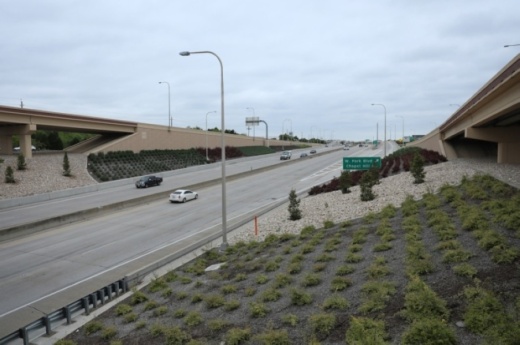Money-saving tactics include an indefinite hiring freeze and budget cuts, according to a voluntary filing with Electronic Municipal Market Access, the self-regulatory organization charged by Congress with promoting a fair and efficient municipal securities market.
Toll revenue in North Texas has nosedived since drivers began sheltering in place earlier this spring. The region’s tollway authority recorded $41.7 million of revenue in April, an annual decline of about 47%. Year to date, transactions are down by nearly 21%, while revenues are down by about 15%.
“We have experienced nothing comparable to a pandemic,” Michael Rey, the authority's media relations manager, said in an email. Transactions processed by the authority declined by about 9% during the week ending March 15, right around the time when area counties began limiting the size of gatherings.
The following week, they dropped by 44%. Since then, weekly transactions have been down by between 40% and 60%. Construction currently underway will continue, but planning and design for corridor expansion projects will be put on hold. Rey said the authority is still in the process of determining which future projects to defer.
“NTTA continues to execute this plan and will monitor traffic performance to determine whether to cease utilizing the plan or to make modifications to it based on the impact of COVID-19 on NTTA revenues,” the filing said.
A short-term loan will be used so some capital improvement projects can continue, Rey said. The authority is securing liquidities to provide cash as it tries to weather the impacts of the pandemic, he added.
Despite the crisis, the authority still believes it can meet or exceed its debt service coverage ratios, according to the filing. This assumes that revenues improve and expenses decline. The authority also plans to use up to $150 million of its Capital Improvement Fund to pay interest on its system bonds.
“While the NTTA believes these assumptions are reasonable, if there is a deviation due to a greater than anticipated impact of COVID-19 or from some other unknown factor, actual results may differ from the NTTA’s projections,” the filing said.
Without clear knowledge of when the crisis will end, it is impossible for the authority to predict the impact the pandemic will have on its own finances as well as the local and global economy. However, the authority believes it is possible that toll roads may never be used the way they were before.
“The NTTA is uncertain as to when, if ever, traffic volume will resume to normal budgeted levels even after many of the restrictions have been lifted,” according to the filing.





